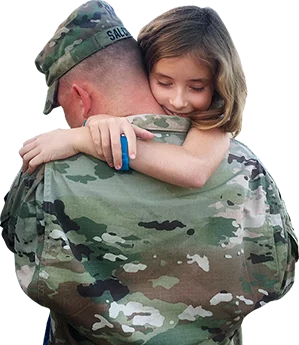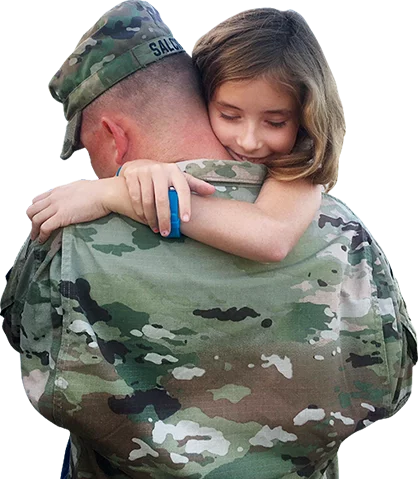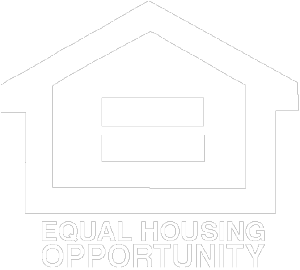What is a VA Loan Entitlement?

Peter Van Brady
Founder of SoCal VA Homes
Author: Avoiding Mistakes & Crushing Your Deals Using Your VA Loan
VA entitlement is one of the most important aspects of buying a home as a Veteran. It’s a confusing topic for pretty much everyone who is new to it, especially when you consider how high the stakes are as a first-time homebuyer. Understanding the fundamentals of entitlement makes navigating the VA home loan process and getting the housing you’re looking for much more straightforward.
Entitlement vs. Guaranty
The terms “entitlement” and “guaranty” often cross paths within this topic. In the most basic sense, the word “entitlement” refers to how much of the maximum allowable VA home loan benefit is available specifically to you, based on your current situation – how much you are currently entitled to. The loan “guaranty” is the amount that the VA actually guarantees for an individual loan, typically 25% of the loan balance.
For example, a Veteran may be eligible for full entitlement but may not use it all, so the actual guaranty would be less than the full entitlement. In this case, the Veteran would still have some entitlement left over, which could be put toward another home loan in the future.
Here’s how the VA guaranty works: the VA simply says to the lender, “In the event that the Veteran defaults on their home loan, we’ll step in pay this maximum amount but no more.” Not only does this give lenders more incentive to offer VA loans, but it also is the reason why lenders do not require down payments. With conventional loans, down payments are required for the same reason: to protect the lender in the event of a default. Needless to say, the guaranty from the VA can go a long way when it comes to achieving homeownership as a Veteran or active duty service member.
The Two Types of VA Loan Entitlement
There are two tiers of Veteran entitlement: basic and bonus. A Veteran’s basic entitlement is $36,000 or 25% of the loan amount, whichever is less. The basic entitlement is based on loan amounts of $144,000 and below. Since the median sale price of single-family homes in California is now over $600,000, it’s clear to see why the VA also offers secondary entitlement, also known as bonus or Tier 2 entitlement. The VA bonus entitlement can expand up to 25% of the home purchase price.
For those looking to purchase a home for more than $144,000, the VA’s bonus entitlement extends the 25% guarantee to loans up to $484,350 for most of the country. In high cost-of-living areas — such as many parts of Southern California — this amount can be raised up to $726,525. These numbers are based on the national conforming loan limit put in place by the Federal Housing Finance Agency (FHFA), in 2019. If you’re looking to borrow more than the max loan amount, your entitlement can still be put to use. Whether you’re above or below the FHFA’s conforming loan limit will affect the interest rate range available for your home loan.
In general, lenders will loan four times the amount of a Veteran’s available entitlement without the need for a down payment, provided other factors such as income and credit are satisfactory. For example, a military borrower with a bonus entitlement of $89,000 could be eligible for a home loan of $500,000. That’s because:
- The basic VA entitlement amount of $36,000
- Plus the bonus entitlement of $89,000
- Equals a total VA entitlement of $125,000
Multiply this by four, and you have an estimate of what a VA home loan lender would offer this Veteran: a $500,000 loan, with no down payment.
Your VA Loan Entitlement in 2020
Again, here’s how your VA loan entitlement and the guaranty connect. Your VA loan entitlement will allow you to borrow more money at 100% financing because the Blue Water Act is eliminating limits. Starting in 2020, the VA is set to eliminate the VA loan guaranty limit. This means that approved military borrowers with full entitlement will be able to receive the 25% VA Loan guaranty and 100% financing, no matter how high the home purchase price is. This is big news, especially for Veterans in Southern California.
The changes in the VA home loan program are being carried out due to the Blue Water Navy Vietnam Veterans Act of 2019. In addition to delivering benefits to Vietnam War sailors, this bill is changing some core aspects of how VA home loans are offered. This includes an elimination of upper loan limits on VA home loans, along with an increase in the VA home loan funding fee for non-exempt military borrowers. In addition, Purple Heart recipients are now exempt from paying the funding fee.
Keep in mind that although the loan limits are going away, this does not mean every Veteran will have unlimited zero-down buying power. Lenders may have their own limits independently of the VA, and there will still be credit and income requirements to meet. In addition, the previous loan limits will still apply to those who have more than one VA home loan or have defaulted on a previous loan. Still, if you’ve been eyeing a property but have held back due to entitlement limits, this rule change could pose a major opportunity.
VA Entitlement Codes and Certificate of Eligibility
The Certificate of Eligibility (COE) is an important document that verifies your military service to lenders. At the top of your COE, you’ll see a two-digit VA entitlement code that tells lenders the nature of your military service. VA loan eligibility requirements vary based on the timing of when you have served — for example, a Vietnam War Veteran (entitlement code 04) would need 90 days active duty to qualify for a VA home loan, while a Veteran who served during peacetime would require 181 days or more of continuous service to qualify.
Wondering how to get your COE? The team at SoCal VA Homes can get it for you in a matter of seconds. If you see a VA entitlement code 05 at the top of your COE, this means that you’ve used a VA loan in the past and have since had your entitlement restored. For more information on VA entitlement codes and loan eligibility, see our COE page.
VA Loan Entitlement Restoration
Qualified Veterans are not limited to only one use of VA entitlement. Under certain circumstances, entitlement can be restored, and the military borrower can take out a VA home loan on another property. The most common way for entitlement to be restored is by refinancing the home with a conventional loan. Alternatively, the original VA loan can be paid off in full or transferred to another qualified Veteran who can substitute their own VA entitlement.
In some cases, the original property will need to be sold before the VA will restore your entitlement. In addition to refinancing options, the One-Time Restoration of Entitlement can be used to restore your VA entitlement without having to sell the original property. This is useful for those who may be looking to rent out the house after it has been paid off in full.
Only primary residences are eligible for VA loans, so when your VA loan is paid off, using your One-Time Restoration, you can rent out your old house and put that income toward a new VA loan on your primary residence. This is a great opportunity for Veterans looking to capitalize on their previous investment, but keep in mind that you can only use this type of entitlement restoration only once.
VA Entitlement Frequently Asked Questions
#1. Can I have multiple VA loans at once?
Although rare, it is possible for a military borrower to have two VA loans simultaneously. If you have entitlement money left over after your initial purchase and are relocated via a permanent change of station (PCS), you may be able to put your remaining entitlement toward a new property without needing to sell the original one. You’ll still need to meet credit and income eligibility requirements in order to qualify for the new loan.
#2. Is my credit score affected by entitlement?
Your VA loan entitlement does not affect your credit score. When lenders run a credit check as a part of the VA loan pre-approval process, the “hard inquiry” may or may not affect your credit score, but if it does, it may only adjust by a few points. If several inquiries are made in the same two-week time frame, such as when you are shopping around for rates, the formulas which produce your credit scores will recognize that you are shopping around and will not ding you multiple times. Additionally, making consistent, on-time payments of your VA home loan is a great way to build up your credit.
#3. Can I transfer entitlement to someone else?
It’s possible for the balance on a VA home loan to be transferred (assumed) to another party. Known as VA loan assumption, this process allows a Veteran to sign the loan debt over to someone else, even if they are a civilian. Lenders have to approve of loan assumption before it can go forward, and there may be a VA funding fee involved.
It’s important to note that while your loan balance can be transferred to any financially qualified borrower, your benefits cannot. Benefits can only be transferred in certain circumstances, such as to a non-remarried spouse of a service member who died as a result of military service.
#4. Are there any entitlement differences for a veteran with disabilities?
The VA offers several home loan benefits for veterans with disabilities. The first factor that a service-related disability affects is loan eligibility. Veterans who have been discharged for a service-connected disability do not need to meet the minimum service requirements of 90 days of active duty during wartime and 181 days during peacetime to earn their VA loan entitlement. The six years of service requirement for those in the Selected Reserve or National Guard are also waived.
Another main benefit for disabled Veterans is that they are exempt from paying the VA Funding Fee. This fee is applied to all new loans and refinances and is typically 2.15% of the loan amount for first-time military borrowers. This fee is set to increase to 2.3% in 2020. In addition, Veterans who receive compensation for their service-connected disabilities can have this income considered by the lender when determining their debt-to-income ratio. Finally, those with disability income may be eligible for property tax exemptions.
#5. Can I still use my remaining entitlement if I had a home foreclosed?
Depending on the source, VA loans have been cited as having the lowest foreclosure rate out of any type of home loan in the United States. Foreclosures and short sales do happen on occasion. Military borrowers who lose their home in a foreclosure sale can still be eligible for another VA home loan down the line. Veterans typically have a waiting period after a foreclosure to be eligible, and this waiting period can change from time to time.
Once eligible for another VA loan, Veterans can put their remaining entitlement toward a new property. Because the original loan was not paid off in full or transferred to an eligible borrower, full entitlement restoration is unavailable. Still, the ability to put any remaining entitlement to good use can go a long way for Veterans looking to bounce back from foreclosure.
#6. Can I use my VA entitlement for the construction of a new home?
Although the primary purpose of a VA home loan is to assist a Veteran with purchasing a pre-built residence, the VA also offers its guaranty for construction loans for those looking to build a home for themselves. This means that you can put your Veteran entitlement toward building your new house. Although many lenders do not support VA construction loans, SoCal VA Homes enables you to buy your land and build your home with zero down and zero closing costs. Find out more about our VA home construction loans.
Why Choose SoCal VA Homes?
We know you have a choice when it comes to picking a VA home loan lender. That’s why the team at SoCal VA Homes works tirelessly to help you make your homeownership a reality. If you’re looking for a property in Southern California, you already know that competition is fierce and care needs to be taken to make your offer attractive. That’s why we’re dedicated to those who serve. SoCal VA Homes is Veterans helping Veterans achieve their homeownership goals. Contact them online or call today! (949) 268-7742





